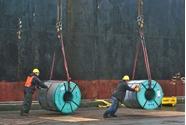Government/Policy

November 3, 2015
HR Critical Circumstances Filed Against Brazil, Australia, Japan & The Netherlands
Written by John Packard
On October 23, 2015 attorneys for the domestic steel mills alleged that exports from Brazil, Australia, Japan and the Netherlands surged into the United States in an effort to “…avoid the imposition of antidumping and countervailing duties.”
Much like the corrosion resistant case that preceded the hot rolled filing which was originally made in August 2015, the domestic mills allege that the foreign mills knew a case against hot rolled was inevitable. The domestic mills used as the base period the months of March through May 2015 and the comparison period the months of June through August 2015. Based on the analysis provided by the steel mills, hot rolled exports from Australia increased by 81.2 percent, Brazil by 44.5 percent, Japan by 114.1 percent and the Netherlands by 21.8 percent during the comparison period.
For an increase in imports to be considered “massive” the threshold has been defined as +15 percent over the base period according to the US Department of Commerce.
The original trade suits were filed against seven countries: antidumping and countervailing duty investigations were announced on September 1st against Brazil, South Korea and Turkey. Antidumping only investigations on HR were announced by the U.S. Department of Commerce for Australia, the Netherlands, Japan and the United Kingdom.
Of the original 7 countries only 4 have been hit with allegations of critical circumstances.
We anticipate that it will take a number of months for the US DOC to make their preliminary determination on the critical circumstances allegations. They will have to make their announcement prior to the Preliminary Determinations being announced for either antidumping or countervailing duties.








